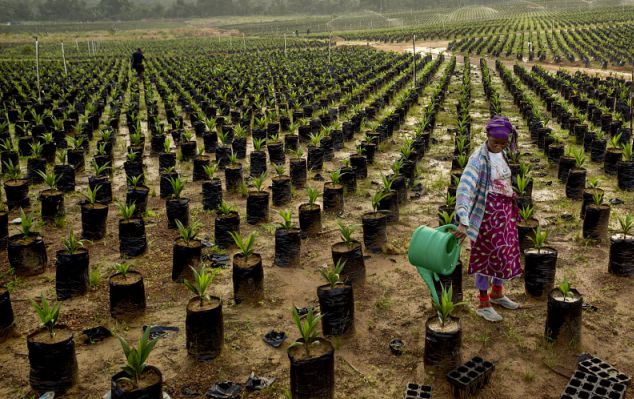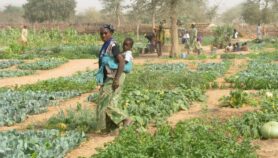By: Sam Otieno
Send to a friend
The details you provide on this page will not be used to send unsolicited email, and will not be sold to a 3rd party. See privacy policy.
[NAIROBI] Promoting active participation of women in environmental management could be one of the much needed key drivers for achieving sustainable development in Africa.
That was one of the prime issues from the discourses that characterised the 2nd session of the United Nations Environment Assembly (UNEA 2) meeting in Kenya this week (23-27 May), that I attended at the Nairobi-headquartered United Nations Environment Programme (UNEP).
Of concern to me was that environmental changes have different impacts on women and men. However, due to long-standing inequalities that silence women’s voices and neglect their needs, particularly poor women, they are disproportionately impacted by the increasingly longer droughts, more severe storms and flooding, biodiversity species depletion, soil degradation, deforestation and other negative environmental challenges.
Empowered women are more vital in shaping environmental management.
Sam Otieno
Experts at the meeting emphasised that women are not only victims of climate change and environmental degradation but also possess the necessary knowledge and skills critical to finding context-specific solutions to the environmental challenges.
Jacqueline McGlade, chief scientist of UNEP, observed that Sub-Saharan Africa should adopt gender equalities in communities and societies, suggesting that this will enable open up new environmental solutions, which can enable the continent of Africa go a long way in realising the 17 Sustainable Development Goals.
Listening to McGlade inspired more my belief that resilience of households and communities depends greatly on the resilience of women. Identifying and addressing both women’s and men’s needs, as well as promoting women as decision-makers are critical elements to ensuring the sustainability of the environmental policy, planning and programming.
“It is essential that environmental policies, programmes and finances incorporate and benefit from the knowledge and leadership of women as they face today’s unprecedented environmental challenges”, says McGlade.
Women, as I learnt, are likely to enormously benefit directly from environmental conservation, protection and improvement and evidence is clear that benefits experienced by women are passed over more completely to their communities than those experienced by men, and will also have a greater positive impact on the nutrition and education of their children.
Consequently, positive environmental outcomes for women is one important means to ensuring environmental sustainability. Certainly everyone will benefit from sustainable environmental development.
From UNEA 2, it emerged more clearly to me that given the requisite tools and support, women are a major driving force for new, more equitable and sustainable models for development. Empowered women are more vital in shaping environmental management.
This piece was produced by SciDev.Net’s Sub-Saharan Africa English desk.














